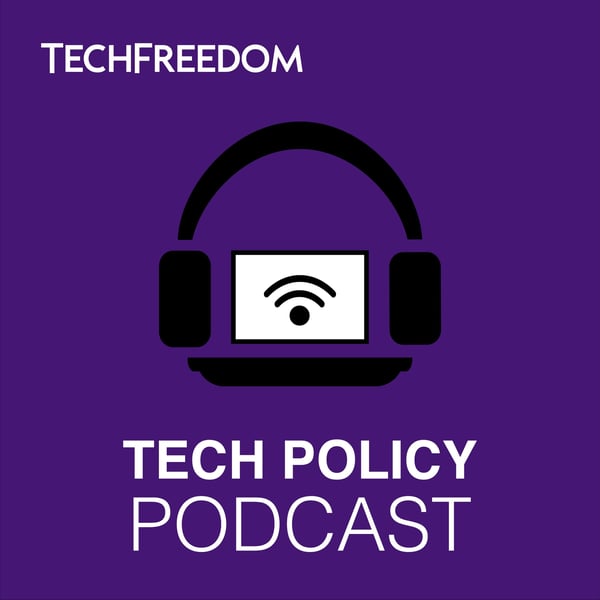#207: Carving Out Privacy Rights: Carpenter v US
Tech Policy Podcast
TechFreedom
4.8 • 45 Ratings
🗓️ 30 November 2017
⏱️ 21 minutes
🧾️ Download transcript
Summary
Transcript
Click on a timestamp to play from that location
| 0:00.0 | Welcome to Tech Policy Podcast. My name is Ash Kazarian. I'm one of the legal fellows and temporary hosts. |
| 0:08.0 | Today, we're going to discuss the Fourth Amendment and how it protects American citizens from unwarranted searches and seizures. |
| 0:14.8 | And how far does it extend? There is a case that is going to be heard at the Supreme Court named Carpenter |
| 0:21.1 | versus United States that seeks to determine an answer to that question. Joining us, we have |
| 0:25.9 | Kurt Levy, president of Committee for Justice, and Ashley Baker, Director of Public Policy |
| 0:31.8 | there. Thank you guys for joining us. Thank you. Thank you for having us. So let's start by, just tell us a little bit |
| 0:39.7 | about what does your nonprofit do. Well, our overall mission is promoting constitutionally limited |
| 0:47.9 | government, you know, and holding politicians accountable to the Constitution, including its limits. |
| 0:56.6 | And this is a classic case of it, the one we're about to discuss Carpenter and the Fourth Amendment in general are really about, you know, how much power does the federal government have to invade your privacy in the name of law enforcement or preventing terrorism. |
| 1:13.2 | Let's then get to it. What is Carpenter v. United States? Tell us more about the background of |
| 1:18.9 | a case, how it got up to the Supreme Court. Well, I can answer that question. It's, this is a criminal case. |
| 1:30.9 | A number of men were convicted of robbing cell phone stores. |
| 1:38.2 | And the way that they were proven guilty is through the use of cell phone location data. |
| 1:46.9 | If it's not obvious, your cell phone provider basically knows where you are anytime you have |
| 1:54.1 | your phone on, you don't even have to be doing anything. You know, your phone is constantly connecting |
| 1:59.9 | with the appropriate cell. And, you know, your phone is constantly connecting with, with the, uh, the appropriate cell. |
| 2:03.4 | And, you know, depending on whether it's a broad cell or a narrow cell, uh, you know, they might |
| 2:09.0 | know where you are within, you know, a few hundred feet or, you know, dozens of feet, but they |
| 2:14.6 | basically know where you are. And they were able to show that Carpenter and his co-defendants were at the site of the robberies. |
| 2:24.4 | And isn't it a little bit ironic that they were robbing? |
| 2:27.6 | Yes. |
| 2:28.6 | They stole cell phones. |
... |
Please login to see the full transcript.
Disclaimer: The podcast and artwork embedded on this page are from TechFreedom, and are the property of its owner and not affiliated with or endorsed by Tapesearch.
Generated transcripts are the property of TechFreedom and are distributed freely under the Fair Use doctrine. Transcripts generated by Tapesearch are not guaranteed to be accurate.
Copyright © Tapesearch 2025.

